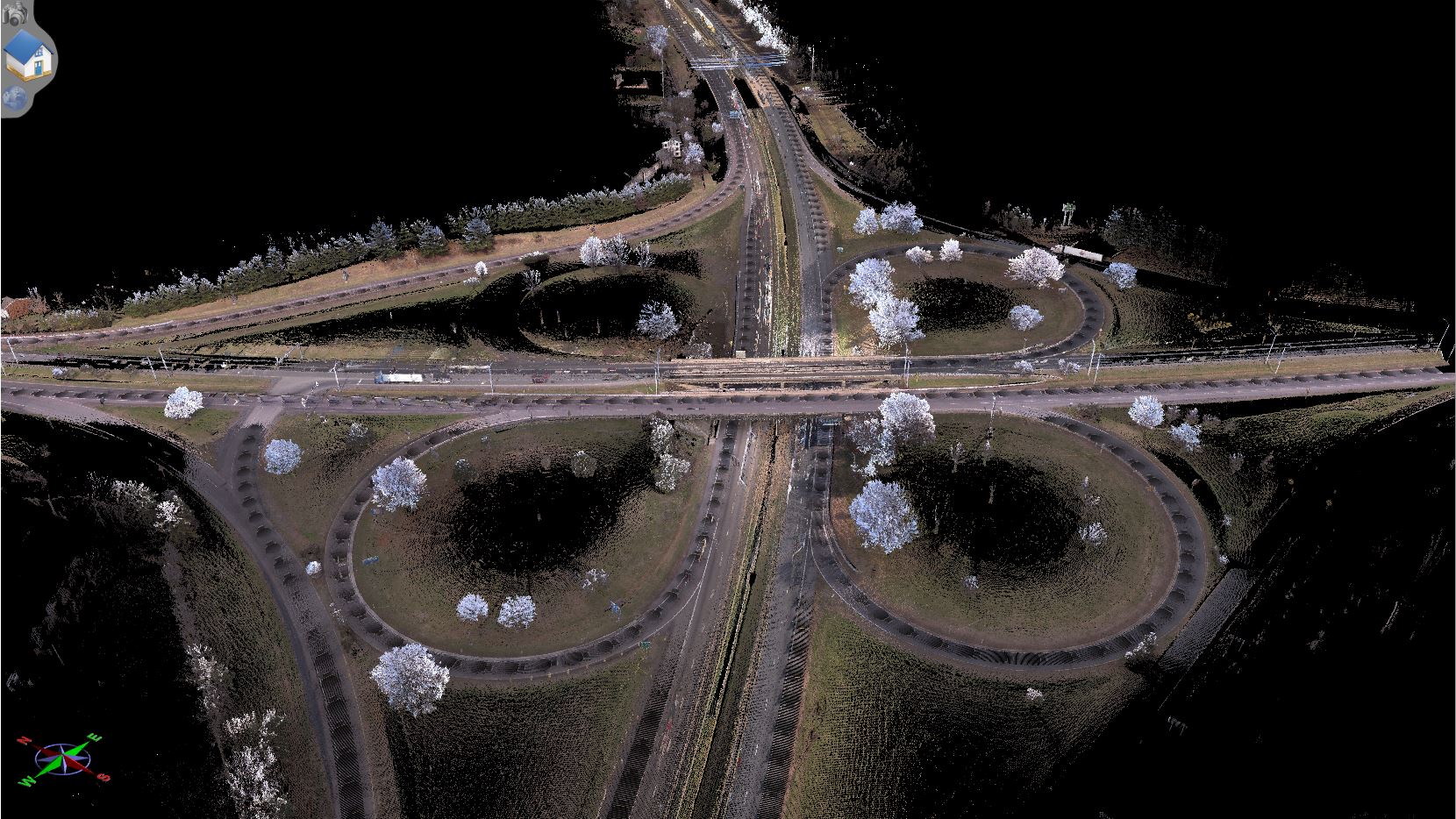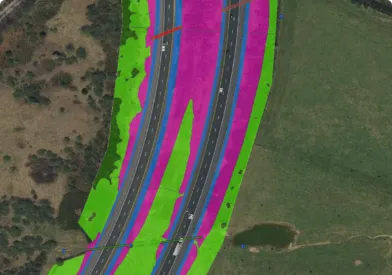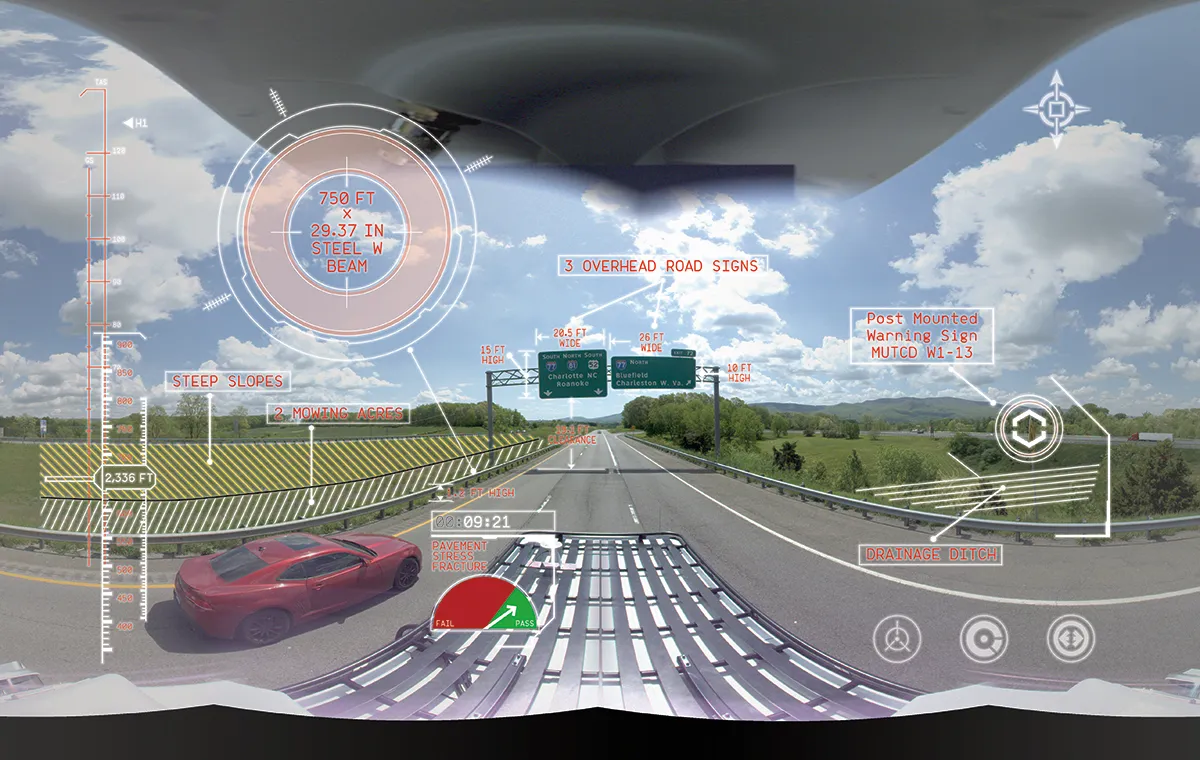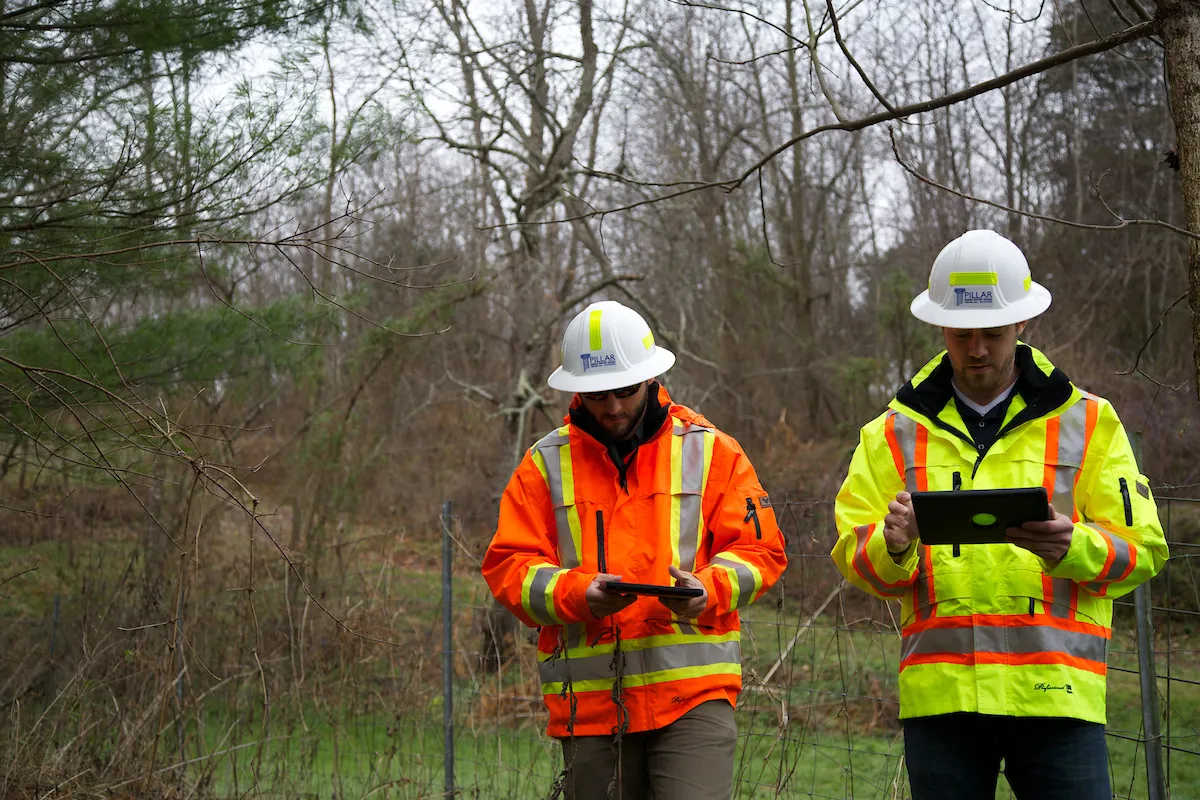
What is Geospatial?
An object or location that has a geographic component and is identified in terms of coordinates is geospatial. Often this data is gathered by GPS, satellite imagery, demographics, statistics, road networks, historical maps, investigation, and LiDAR. The data set is impressive, but knowing what to do with it can be overwhelming. That’s why you need an experienced partner who can help.

Why You Need a Geospatial Asset Inventory
Does having a global and granular view of your assets and their condition sound impossible? Geospatial asset inventories make it possible—giving you a full-scale understanding of your assets from location to condition so you can make data-driven decisions. With a geospatial asset inventory, you’ll be able to:
- Use the data for many functions including O&M, emergency, financial, development & planning, and compliance
- Save time and money by collecting data in hours rather than months
- Observe conditions and assets remotely increasing worker safety while saving time, money, resources, and energy.
Share data with collaborators and integrate existing data into your system
Get Solutions Tailored to Your Needs with PILLAR
PILLAR has helped DOTs all over the country evaluate their existing geospatial data and strengthen their digital assets through our geospatial solutions. Want a solution developed specifically for your requirements? Contact us to learn how we can help.

Let’s Talk
Complete the form below to start a conversation with PILLAR.





